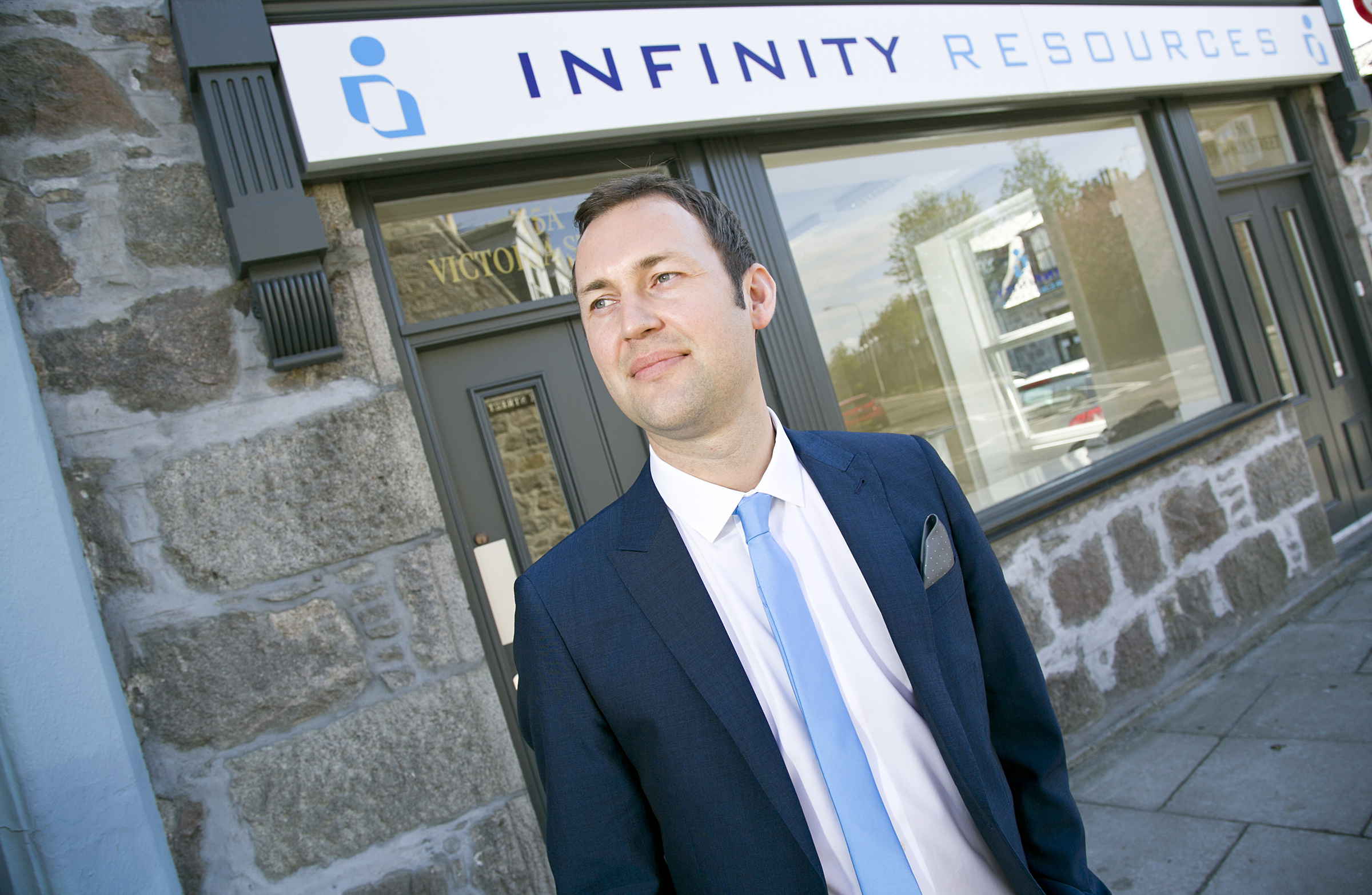Despite challenging economic conditions affecting the North Sea market, there are still opportunities for the right candidates to develop essential skills and advance their careers.
That’s the view of Martin Finnie, chief executive officer at Aberdeen-based Infinity Resources International, which specialises in recruitment for the oil and gas industry. He believes that although the fall in the oil price has led to a slowdown in activity across some parts of the industry, the north-east will remain at the forefront of global enterprise for many years to come.
Martin said: “Clearly the fall in the oil price – and the resulting cost-cutting and efficiencies exercises – has had a significant knock-on effect for a number of businesses, including those further down the supply chain. While many of the reports have been full of doom and gloom, in reality, that’s only half the story. Whenever economic times get tough there is always scope for proactive businesses and entrepreneurs to seize their moment.
“What does this mean for job-seekers in the current climate, then? Well, for starters, individuals should be considering what they can do differently to make themselves stand out to potential employers – whether that is through talking to recruiters, attending networking events, retraining, or enhancing and developing existing skills.”
Here, Martin outlines five ways candidates can enhance their future prospects in the North Sea oil and gas industry.
New technology: We are increasingly being approached by a number of smaller consultancies and emerging businesses who are supporting expansion in tandem with new technology development and innovation. Candidates should be looking at how to match their skills to these growing businesses as a means of bridging the gap.
Education: One potential route is to consider further education to complement their present experience. For instance, someone with an HND may look to complete their degree to ensure they don’t miss out on future career prospects.
Fresh perspective: Employing people from diverse backgrounds can help companies address concerns about skills shortages. Skilled workers from either a military or emergency services background can bring a wealth of knowledge and experience that simply can’t be taught elsewhere.
Be a specialist: Anything that can add value to an employer will stand you in good stead when competing for vacancies. Key personnel in areas such as health & safety, compliance and certification are still sought after so make your CV stand out by highlighting a broad range of capabilities.
Networking: Whenever times get tough there is often an increase in the number of people attending industry networking events. In a competitive jobs market it can pay dividends to extend your network of contacts among key decision-makers, particularly if you have the necessary experience.
Martin added: “By taking a proactive approach now, candidates will be well placed to capitalise on opportunities once the market does pick up, which I’m convinced it will. The number of businesses which set up during the recession – and have since flourished – should hearten candidates affected by the current slump: there should still be a degree of confidence across Aberdeen City and Shire that we can come through this period with a view to a brighter future.”
